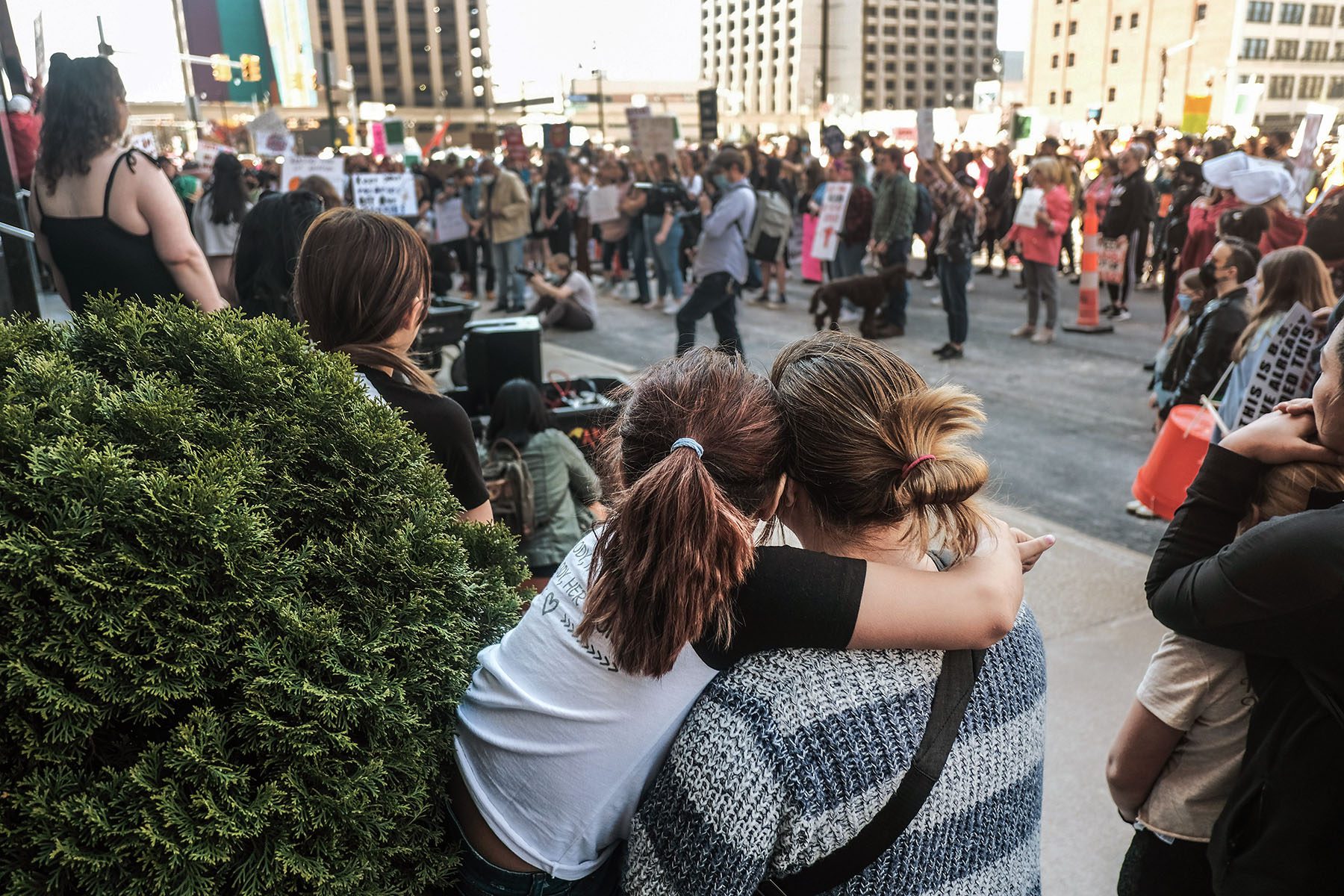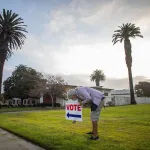DETROIT — A ballot measure that would enshrine abortion rights into the Michigan Constitution has been thrown into limbo just weeks before it was set to be presented to voters, though its supporters say they’re hopeful a court ruling this week will get it on the ballot.
The Michigan Supreme Court is expected to issue a ruling on whether the ballot measure brought by the group Reproductive Freedom for All (RFFA) will make it to voters in the November midterm election. The group has filed an emergency complaint to the court asking for an expedited ruling.
The complaint came after the two Republicans on a four-person elections board known as the Michigan Board of State Canvassers voted last week to reject the ballot measure after opponents challenged it. Democrats on the board voted to advance the measure, resulting in a tie that blocked its certification.
Organizers for Reproductive Freedom for All — a coalition that includes Planned Parenthood Advocates of Michigan and the ACLU of Michigan — collected more than 750,000 signatures over several months in support of the ballot measure, far more than the roughly 425,000 needed. It’s one of several abortion-related ballot measures that citizens around the country have organized around in the wake of the U.S. Supreme Court’s June 24 ruling that overturned federal abortion rights.
The future of abortion rights is expected to increase voter turnout in November, according to political strategists and pollsters tracking voter sentiment. In August, voters in Kansas overwhelmingly rejected a proposed constitutional amendment that would have eliminated state abortion protections.
Abortion being handed back to states has brought attention to Michigan, where a 1931 abortion ban has not been in effect amid litigation. (On Wednesday, the Michigan Court of Claims struck down the nearly century-old law as unconstitutional.) Although Reproductive Freedom for All began collecting signatures before the U.S. Supreme Court’s ruling in June, some see the ballot measure as another way to ensure the 1931 abortion ban remains dormant.
The ballot measure would guarantee the right to an abortion up until fetal viability, and restrict the state’s ability to regulate abortion after that point if the health of the pregnant person is in danger, as well as care related to a pregnancy, including birth control, according to the group. Citizens to Support MI Women and Children, a coalition of anti-abortion groups, opposes the scope of the ballot measure, saying it would overturn several abortion restrictions in the state.
Reproductive Freedom for All has argued to the court that rejecting the ballot measure would violate the rights of people who signed a petition in support of it. In its filing, the group says it’s losing “valuable time and resources” to educate the public about the proposal.
“I think it’s just another testament to how deranged our politics really has become, not only in Michigan, but all across the country, when essentially two people can thwart the will of nearly three quarters of a million citizens who signed on to a petition for a ballot proposal,” said Dr. Michael Hertz, an organizer for Reproductive Freedom for All and a retired OB-GYN who met with potential voters at an event in northern Michigan over the Labor Day weekend.
Citizens to Support MI Women and Children challenged the ballot measure in a legal filing that described some spacing and formatting errors in the text “as a hodgepodge of nonsensical gibberish.” The coalition estimates there are 60 errors that were not in a version of the ballot measure submitted earlier in the year.
“Constitutional amendments aren’t about big grand themes or big ideas … they’re really about very specific words that have been carefully chosen and have legal meaning,” said Christen Pollo, a spokesperson for the group. “And in this case, we’re looking at strings of 108 characters that don’t have any definition in the English language. The correct number of errors put in our constitution is zero, not 60.”
Reproductive Freedom for All says that spacing on the proposed amendment was inadvertently minimized but not eliminated and that a simple copy and paste of the electronic version of the petition would show that. The group also argues that the board exceeded its authority in rejecting the ballot measure.
The Michigan Supreme Court, which leans Democratic, has typically ruled in favor of ballot measures when enough petition signatures have been submitted. The anti-abortion coalition has not challenged the validity of the signatures. The court is set to take up the abortion rights ballot measure and another ballot measure that would expand voting rights in the state. Democrats and Republicans were also deadlocked on that vote. Most observers expect a ruling in both cases by Friday to give election offices time to print ballots.
Michigan Secretary of State Jocelyn Benson, a Democrat who is running for reelection this year, expressed alarm at the board’s actions on both ballot measures.
“Technicalities should not undermine the voice of the voters and the will of the people from coming to fruition,” she told The 19th on Monday. “And yet when we see a hyper politicization of these canvassing boards at the state or local level, that’s essentially the danger: that they choose partisanship over the law and doing what’s right. My hope is that the law will prevail here.”
Benson drew parallels to a scenario in which an elections board blocks certification of an election. She said that in the hours after the board’s vote, there were rumors that the ballot measure was officially rejected. She said it’s important for the law to be communicated clearly to the public — in this instance, that there was a legal remedy through the state supreme court.
“Part of the strategy is to create confusion and sort of feed into this chaos, in this moment, and cause people to disengage and not pay attention, and not want to pay attention because it’s too noisy,” she said.
At a Labor Day picnic in Detroit, other elected officials and organizers expressed frustration that the state’s highest court had to even get involved.
“It would be a travesty to go against the will of the people,” said Debbie Rosenman, an activist in Bloomfield Hills in southeastern Michigan who volunteers for a group called Fems for Democracy and helped collect signatures. A rally in support of the ballot measure was scheduled Wednesday in Lansing.
U.S. Rep. Brenda Lawrence, a retiring Democrat representing Detroit and surrounding areas, called the rejection “insulting” to the hundreds of thousands of people who signed a petition to get the issue on the ballot.
“Hopefully the court will make the right decision,” she told The 19th. “You can have your personal opinion. But America is about a democracy. … I feel strongly that if we get it out there, based on the people who signed the petition, that we can win.”






